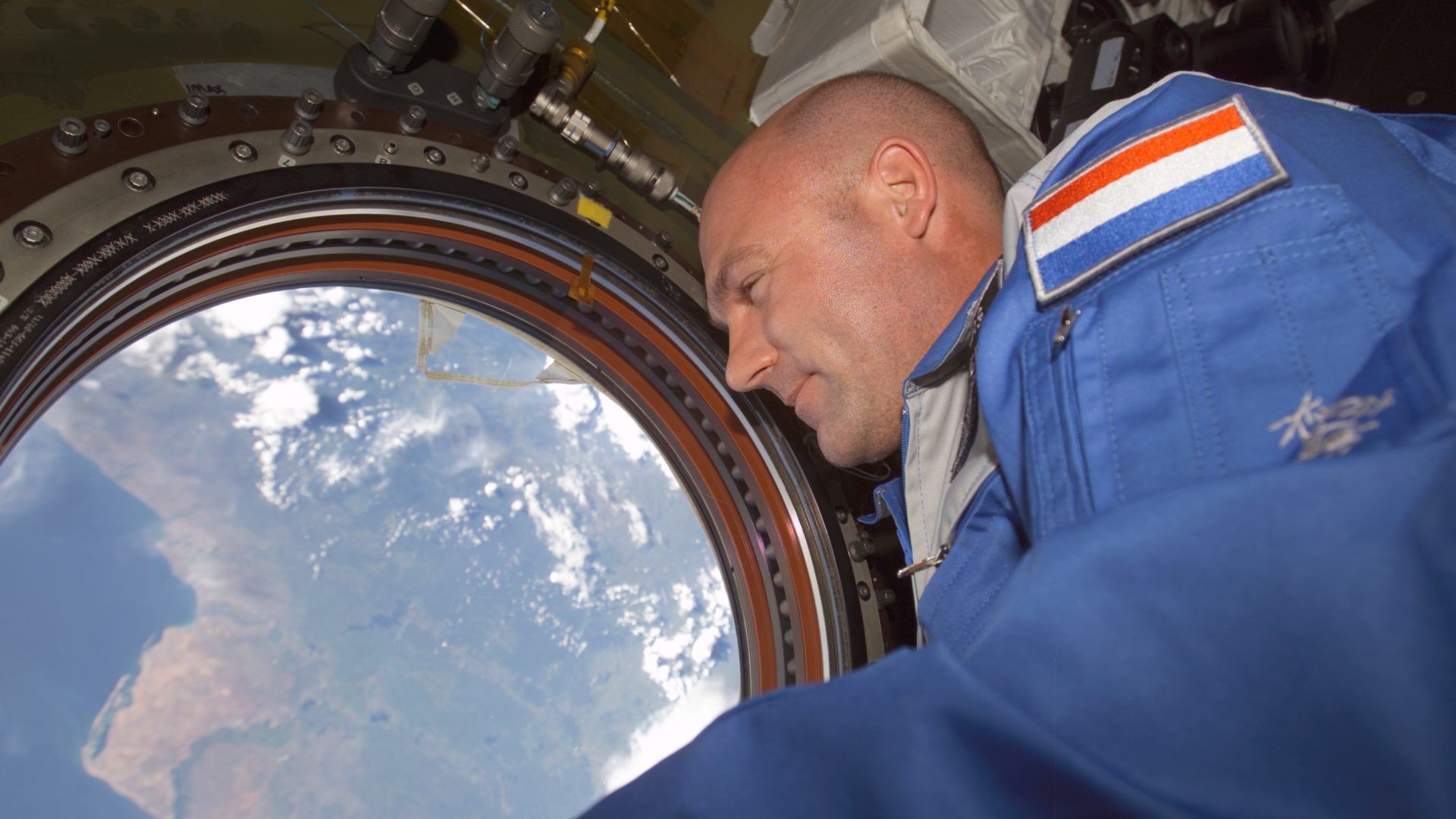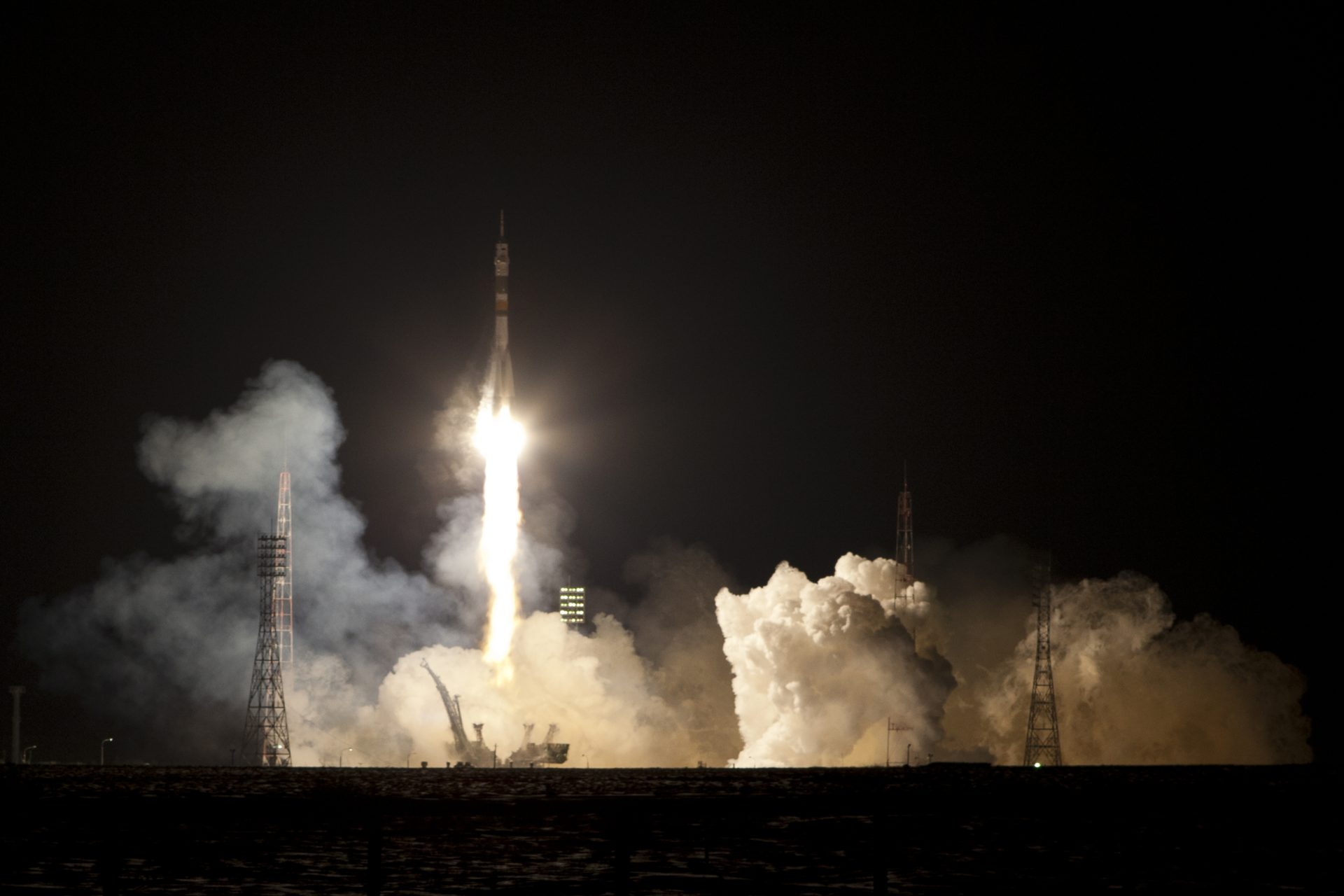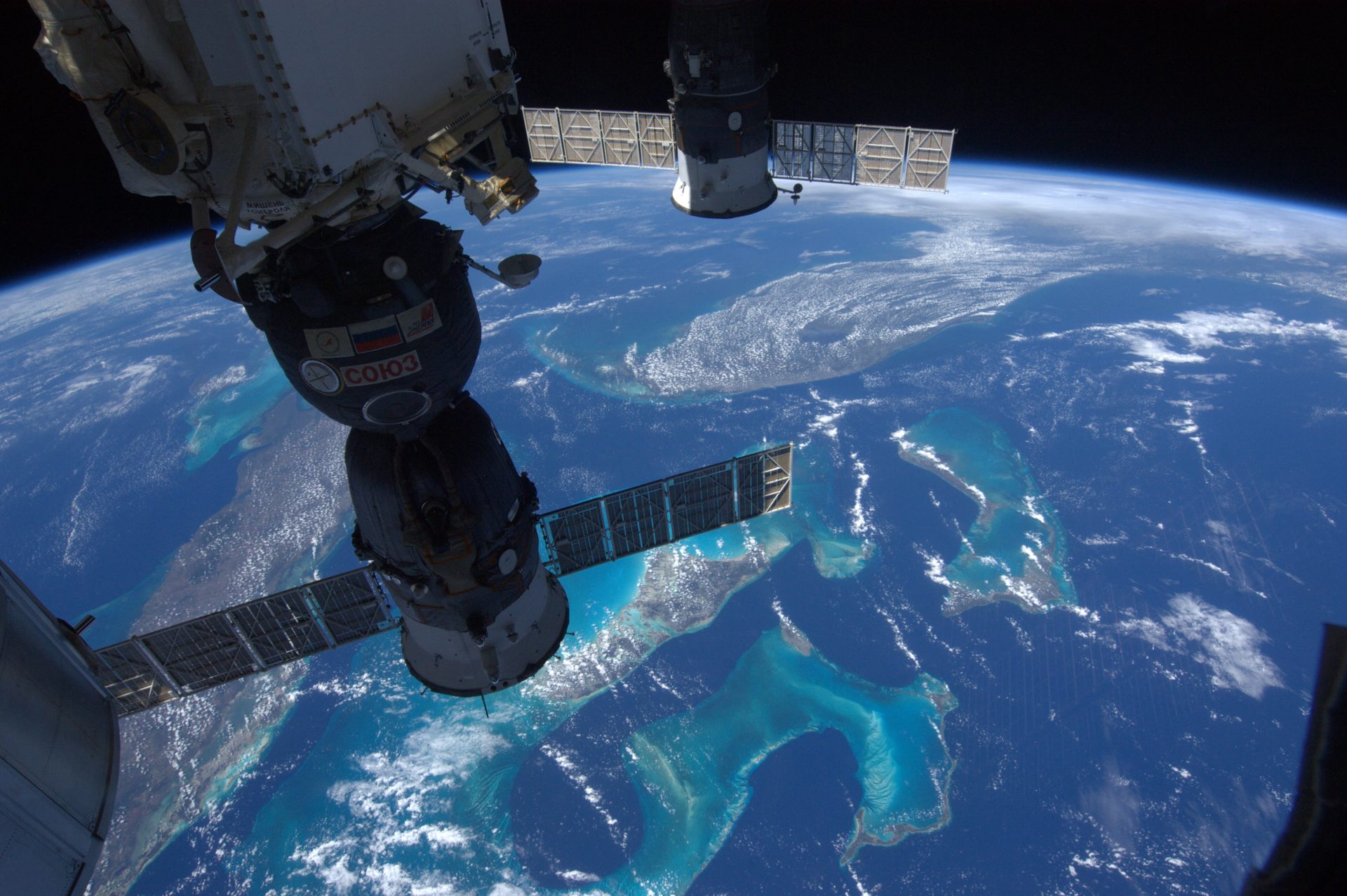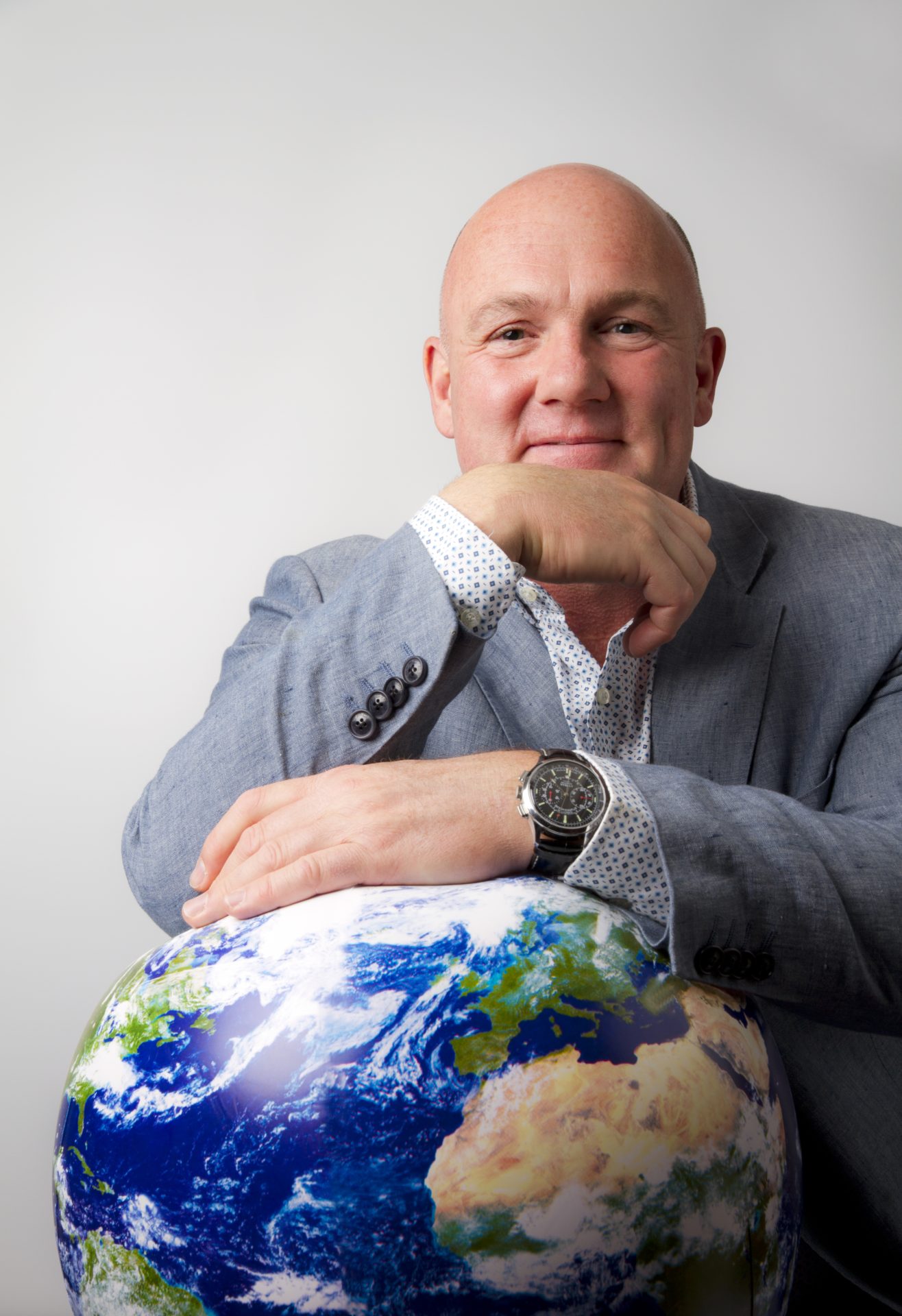Astronaut André Kuipers: ‘We benefit from space rockets every day’
-
 André Kuipers in the ISS. Photo: Wikimedia Commons (cc0)
André Kuipers in the ISS. Photo: Wikimedia Commons (cc0)
If anyone has experience with social distancing, it would be astronaut André Kuipers. 1.5-metre distancing? For six months he maintained a 400,000-metre distance while in the International Space Station. On Sunday he will give a lecture on his experience in space during the start of the Orientation Week.
‘Yes, there are clear similarities between life during the coronavirus pandemic and work as an astronaut,’ agrees André Kuipers (61). For example, the two-week quarantine every astronaut has to go through just before they go up. ‘This is intended to prevent viruses or other pathogens from causing problems on board the International Space Station (ISS) and endangering the mission,’ says Kuipers on the phone.
But he must admit the rules were broken from time to time, just like during the current pandemic. For example, Kuiper’s wife Helen and his eldest children Robin and Megan were allowed to touch and hold him during his quarantine (‘just for a moment, for my own sake’), two days before he flew a Russian Soyuz rocket to the ISS for the second time at the end of 2011 (see box). After that they had to settle for Skype and telephone calls for six months.
Threat
Being aboard a spaceship in orbit is perhaps the most extreme form of social distancing. Kuipers: ‘You are locked up, and you cannot do everything you want. You also feel threatened in a way, just like during the coronavirus lockdown. You cannot be rescued easily if things go wrong.’
And just like the coronavirus measures now, Kuiper’s stay at an altitude of 400 kilometres lasted longer than expected. A technician on earth damaged the Soyuz capsule that was supposed to send the next ISS’s crew. Because of this, Kuipers had to stay on board the space station six weeks longer. ‘That was frustrating, because I missed my daughter’s graduation as well as my son’s birthday, which I had promised I would be back in time for.’
First-year students had to miss their secondary school graduation and now their student days are off to a very limited social start. Even the Orientation Week is largely going to be held online. How did you handle missing these important moments?
‘Well, that delayed return flight was out of our hands. There was nothing that we could do about it. Even if I had wanted to go back to Earth, I would not have been allowed to. In the end, I did not mind staying longer, because I loved it up there. It was so exciting and beautiful. And I could do with the additional time, for example to take pictures and make movies.’
‘You can’t let yourself think that you aren’t good enough.’
You have wanted to go into space since you were 12. Many students and scientists also have a dream: for example to become a surgeon, writer, or a Nobel Prize winner. How do you achieve this?
‘I think many people who are at universities already have the right qualities, otherwise they would never have ended up there. For me, frustration tolerance, perseverance, and patience were important qualities. Becoming an astronaut takes years of work, and there is always a risk that it still won’t work out.’

‘That also applies if you are a first-year student and want to become a surgeon, or if you dream of a Nobel Prize. You have to think: where do I want to be in ten years, and what do I have to do now to get there? The most important thing is to not be your own worst enemy by thinking you aren’t good enough. Let others decide that.’
‘But the most important quality is motivation. You have to want something really badly and actively pursue that passion. Nobody is going to say, “Hey, I’ve got a great job for you as an astronaut.” If I had not been motivated, I for example would have missed the ESA (NASA’s European counterpart, ed.) recruitment advertisement in September 1990. Because I had informed about it a lot of times already, I new the vacancy was coming.’
‘If you have a girlfriend who says, “I do not want you to do it,” then you have the wrong girlfriend.’
Luck plays a big part in it too. In 1992 Kuipers made it to the last selection round — out of 22,000 candidates — but eventually missed out because ESA could hire fewer new recruits than planned. Kuipers then went on to explore alternative careers (although space exploration remained on top of his list) and applied for a training position as a surgeon in his previous field of medicine. But at the age of 34 he was slightly too old for this as well. His choice for space travel also appeared to have closed other interesting doors.
Six years later, his luck turned around. Kuipers — who eventually stayed true to his heart and became scientific coordinator at ESTEC in Noordwijk (ESA’s technical centre) — was ecstatic. Due to an organisational change, a space in the European astronaut team opened up for him.
A doctor in space
Andre Kuipers (Amsterdam, 5 October 1958) grew up in a working-class family, with two older brothers. He studied medicine at the University of Amsterdam and participated in the doctor’s exam in 1987. He joined ESA in 1991 and became a member of the European astronaut team in 1998.
From 19 to 30 April 2004 Kuipers made his first space journey to the ISS, as the world’s 432nd astronaut, and the second with Dutch nationality (after Wubbo Ockels in 1985). From 21 December 2011 to 1 July 2012, he went back to the space station for 193 days, a European record. In addition to his work for ESA, Kuipers currently gives lectures and is a WWF ambassador.
Kuipers lives with his wife Helen in Vijfhuizen, and has three daughters and a son.
In your biography titled ‘Droomvlucht’ (‘dream flight’, ed.), you say: ‘For my first mission, I was willing to give up everything and everyone: that is how strong my dream to go to space was.’ You were even willing to end your relationship. That is quite..
‘.. obsessive?’ I often compare it to professional athletics. You have a goal, and that is what you have to do. I wouldn’t have killed for it, but everything else had to give way. If you have a girlfriend who says, “I do not want you to do it,” then you have the wrong girlfriend. You have to give each other space.’

How did you avoid sinking into a depression? Former astronauts as moon walker Buzz Aldrin and Yuri Gagarin started drinking.
‘Those examples are exceptions to the rule. There is nothing extraordinary about astronauts; they are just as different from each other as other people. I myself did not end up in a dark place. I think it is because I am still involved in space travel — it involves more than astronauts: it’s about teamwork. I work at Capcom (the communication desk with the ISS), test equipment with my user experience, and am part of in medical ethics and safety committees. As much as I would like to go to the moon or Mars myself, the next flights into space belong to the next generation.’
‘Space travel is very sustainable!’
Nowadays, you also give lectures on sustainability, and you are an ambassador for WWF. Your rallying cry is to protect our fragile earth. But it is difficult to call space travel sustainable.
Fel: ‘Space travel is very sustainable!’

A Soyuz launch results in emissions of 243,000 kilos of CO2 and 400 kilos of nitrogen oxides. That is the same amount of CO2 that 15 cars emit for five years.
‘The benefits of space travel far outweigh the damage. We use satellites every day, for car navigation, communication, and to predict the weather. And the experiments in the ISS increase our knowledge, of fluid physics for example, or our own body. How does our balance system lead to seasickness? How can we counteract osteoporosis?’
‘The environment also benefits. Think of accurate observations that make efficient precision agriculture possible, and which quantify deforestation and air pollution. And in the future, we might get our minerals or energy from asteroids or the moon, instead of dangerous and polluting mines on Earth.’
You sound like a true optimist.
‘Yes, I strongly believe in manufacturability and in the ability of technology to solve environmental problems and unevenly distributed wealth.’
‘I am worried about people who listen to populists on Facebookm who spread propaganda or deny science’
Even you must sometimes feel defeated.
‘Of course. What worries me, for example, is the rise of fascism. Occasionally I see the cloud of the 1930s overhead. Just like now, there was a crisis. Back then people chose the political extremes — far left or right — instead of the centre. Now there is a similar tendency by stupid, aggressive people on Twitter or Facebook, who only follow their gut feeling. As a result, they listen to populists who spread propaganda or deny science, from coronavirus sceptics to people who say the earth is flat.’
Is there a responsibility for universities in this?
‘Universities must show how the world really works and what the scientific facts are as much as possible. Fortunately, they do. It is a difficult battle, because the weakness of scientists is of course that they have doubts — that is part of their job. But what some media are doing is putting a fierce anti-vaxxer on the opposite side who does not know anything about diseases or vaccinations. It makes people think: he does seem sure of what he is saying. The media needs to do better. Please only organise a discussion between two people who both have knowledge of the subject.



